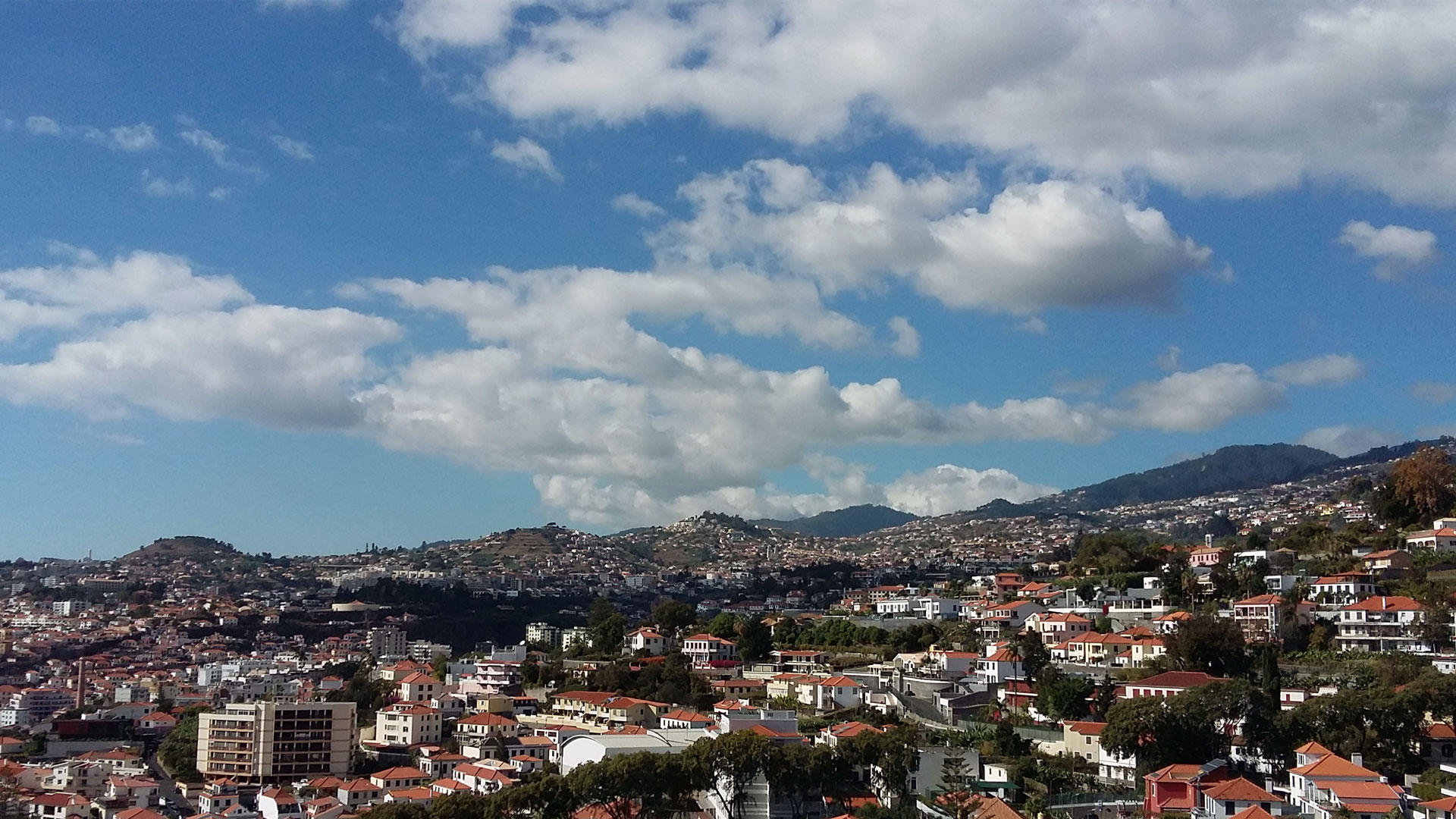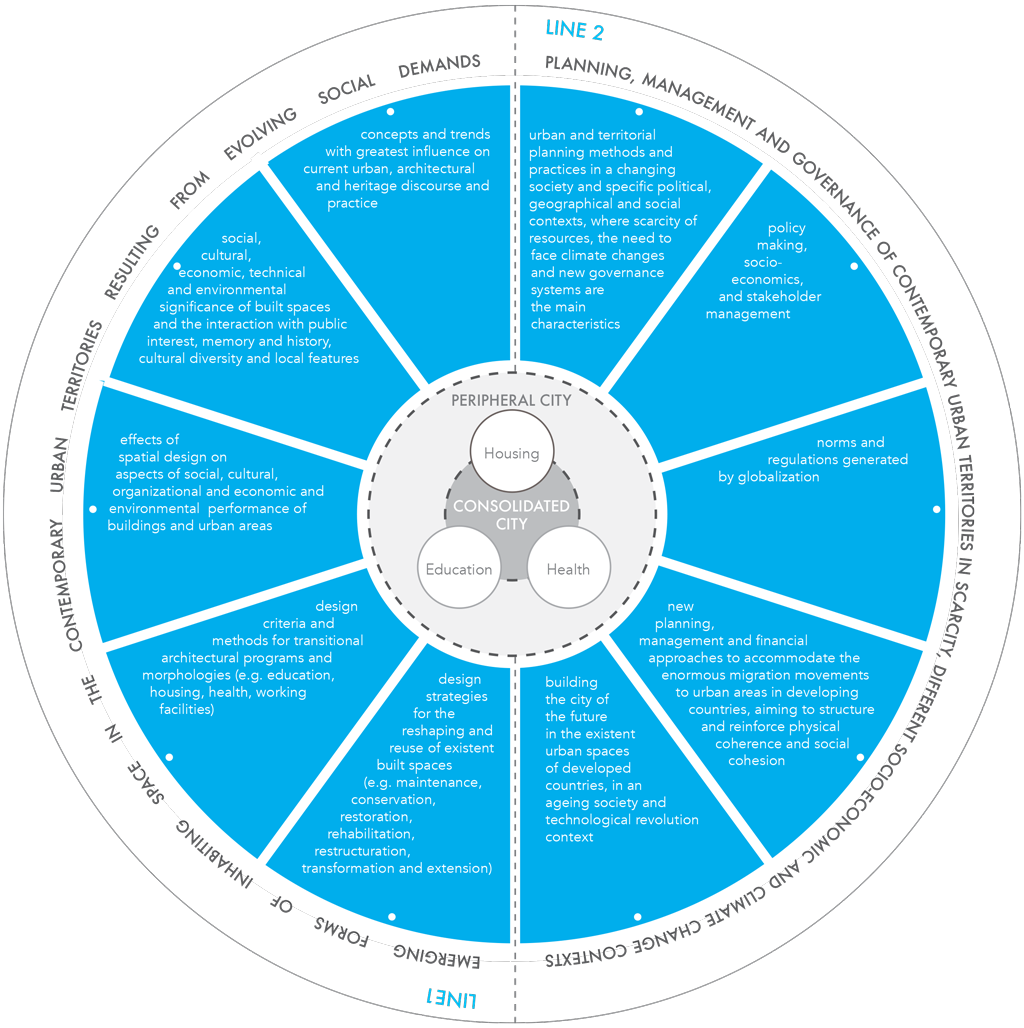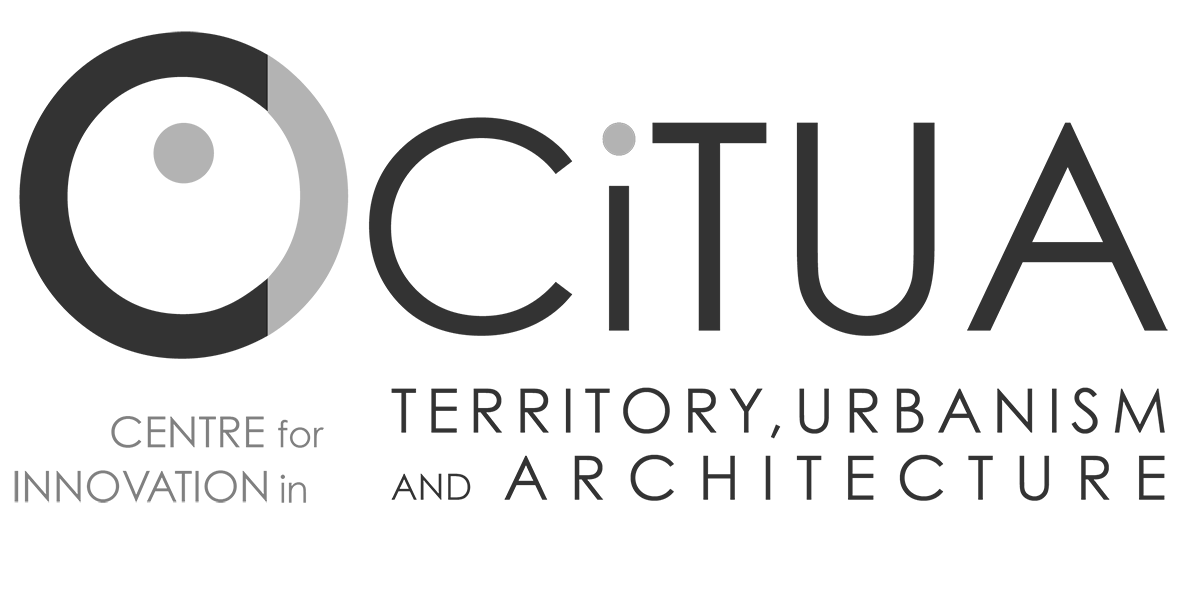
The research activities of CiTUA (both on basic and applied perspectives) covers different scales of urban issues, from the territory to the building structures, integrating a multidisciplinary approach to better understand the unprecedented 21st changes and challenges. However, it is clear that there are specificities at each one of the scales as there are also two main issues object of the research focus:
i) the adaptation to new social demands and technological evolution;
ii) and the consequences of new contexts in which planning activities takes place, characterized by limited or scarce resources and facing the consequences of climate changes.
According to this understanding, the research in CiTUA is organised in two lines intertwined, where both scales and the preoccupations to respond to different social, economic and cultural contexts, are present. These two lines also express CITUA researchers’ contribution to a growing field of cross-cultural studies and interdisciplinary scholarship that use concepts from humanistic, social, scientific and technical disciplines.

LINE 1: Emerging forms of inhabiting space in the contemporary urban territories resulting from evolving social demands.
The objective of this line is the understanding and advance of:
i) concepts and trends with greatest influence on current urban, architectural and heritage discourse and practice;
ii) social, cultural, economic, technical and environmental significance of built spaces and the interaction with public interest, memory and history, cultural diversity and local features;
iii) effects of spatial design on aspects of social, cultural, organizational and economic and environmental performance of buildings and urban areas;
iv) design criteria and methods for transitional architectural programs and morphologies (e.g. education, housing, health, working facilities);
v) design strategies for the reshaping and reuse of existent built spaces (e.g. maintenance, conservation, restoration, rehabilitation, restructuration, transformation and extension).
LINE 2: Planning, management and governance of contemporary urban territories in scarcity, different socio- economic and climate change contexts
The objective of this line is the understanding and advance of:
i) urban and territorial planning methods and practices (e.g. city-wide strategic planning, master planning, community planning, land- use planning) in a changing society and specific political, geographical and social contexts, where scarcity of resources, the need to face climate changes and new governance systems are the main characteristics;
ii) policy making, socio-economics, and stakeholder management;
iii) norms and regulations generated by globalization (e.g. multi-actor governance, the new role of the State and the proliferation of producers of norms and standards; the increasing obsolescence of existing regulations as a result of the emergence of local and transnational frameworks; common goods, etc.);
iv) new planning, management and financial approaches to accommodate the enormous migration movements to urban areas in developing countries, aiming to structure and reinforce physical coherence and social cohesion.
v) building the city of the future in the existent urban spaces of developed countries, in an ageing society and technological revolution context.
